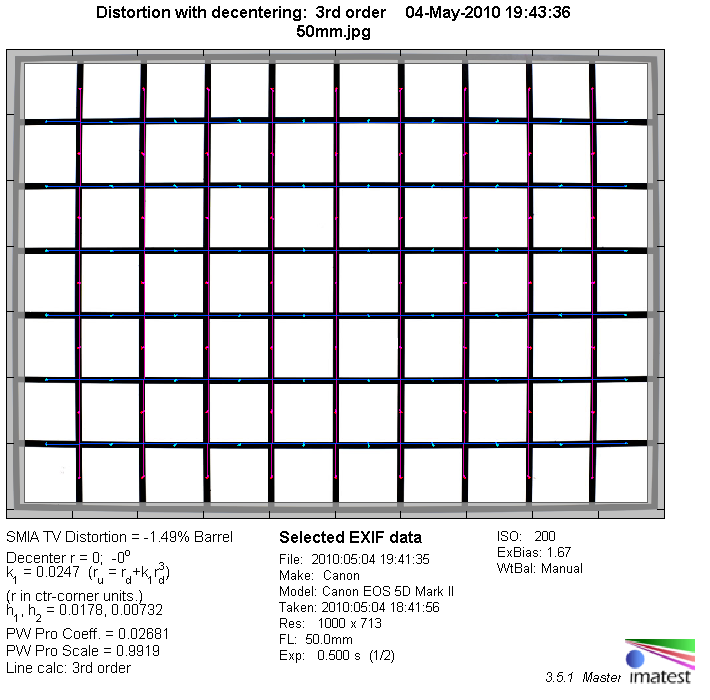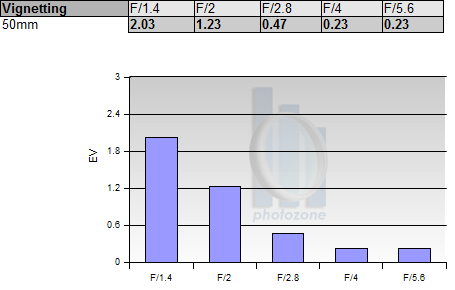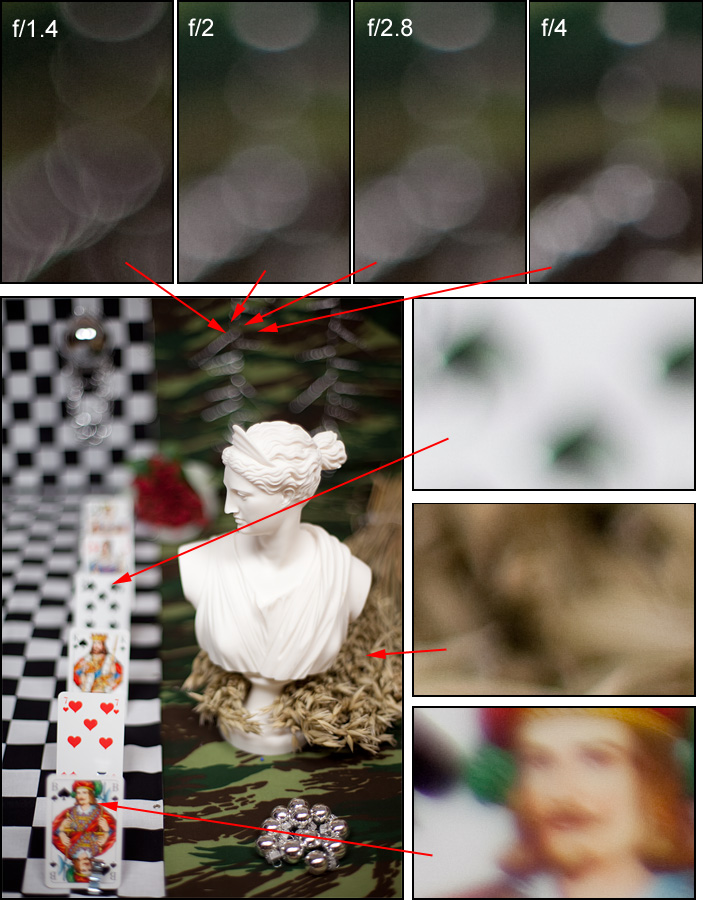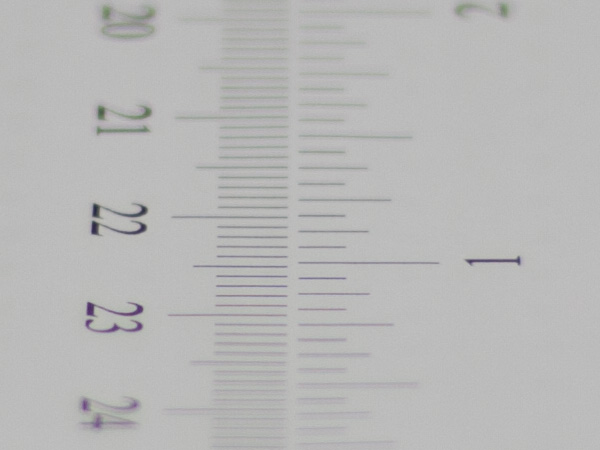|
Zeiss Planar T* 50mm f/1.4 ZF (ZE) (on Canon EOS) - Lab Test / Review - Analysis |
|
Lens Reviews -
Canon EOS (Full Format)
|
|
Page 2 of 2

Distortion
The Zeiss ZF 50mm f/1.4 produces a slight to moderate degree (1.5%) of barrel distortion.

The chart above has a real-world size of about 120x80cm.
Vignetting
The Zeiss lens joins the rest of the gang regarding its vignetting characteristic on full format DSLRs.
It shows a very hefty light falloff at f/1.4. The issue is still fairly pronounced at f/2 so if you want
to tame the issue you should stop down to f/2.8 or smaller apertures.

MTF (resolution)
Traditionally 50mm lenses were and are still a benchmark for film as well as
image sensors. That's certainly true regarding the peak performance but the Zeiss lens
disappoints at large aperture settings. The center performance is convincing even at f/1.4
but the border/corner quality is poor here. The contrast could also be better. The situation
starts to change at f/2.8 where the border quality jumps to very good figures although the
corners remain so-so. Stopping down to f/4 boosts the quality to the max. The center quality
is outstanding here and even the corners reach very good results. The global peak performance
is reached around f/5.6.
Please note that the MTF results are not directly comparable across the different systems!
Below is a simplified summary of the formal findings. The chart shows line widths per picture height (LW/PH) which can be taken as a measure for sharpness.
If you want to know more about the MTF50 figures you may check out the corresponding Imatest Explanations
Chromatic Aberrations (CAs)
Chromatic aberrations (color shadows at harsh contrast transitions) are pretty well controlled
with an average CA pixel width of around 1px at the image borders. This may be visible upon
closer observation but it's usually a non-issue.

Bokeh
The bokeh (quality of the out-of-focus blur) is generally pretty good. Out-of-focus highlights show
a slight outlining effect at f/1.4 but they're very smooth at f/2 and beyond. The blur is fairly smooth
in the focus transition zones. However, the border/corners are somewhat "smeared" at large apertures.

Bokeh Fringing / Longitudinal Chromatic Aberrations (LoCA)
The Zeiss lens shows very pronounced LoCAs at large apertures - this is typical for such lenses.
These green/purple halos in the focus transition zones are very obvious at f/1.4 and still visible at f/2.
There's still a slight fringing hint at f/2.8 although that's hardly field relevant anymore.
You may also notice the focus shift (RSA) when stopping down from f/2 to f/2.8.
|
Move the mouse cursor over the f-stop marks below to observe the respective LoCAs
|
| f/1.4 |
f/2 |
f/2.8 |
|

|
Verdict
Some years ago we analyzed the Zeiss Planar T* 50mm f/1.4 on an APS-C DSLR and the results were truly impressive there. However, on a full
format DSLR the performance leaves a bit to be desired actually. The lens is capable of delivering great results at medium aperture
settings - no doubts - but it disappoints at f/1.4 and f/2 with a rather poor border/corner performance and generally reduced contrast.
Depending on the use-case this may or may not be overly relevant (e.g. portraits) of course.
The light falloff is on the high side here but that's a rather normal characteristic for such lenses. Lateral CAs are well controlled and
not overly field relevant. The quality of the bokeh is pretty good although the weak contrast may spoil the game at f/1.4.
Just like the rest of its family the Zeiss lens is built to the highest standards. Some users may complain
about the lack of AF but this isn't really a significant flaw for a wide-angle lens. The focus confirmation
is available in the viewfinder (ZE version) and in very critical (close focus) scenes Live-View can give
you the needed guidance. That said, it remains a bit of an anachronism these days.
The price level is quite steep so you really have to have a itch for such classic lenses.
| Optical Quality: |
 |
|
| Field Quality: |  (Low light-/Shallow Depth-of-Field Photography) (Low light-/Shallow Depth-of-Field Photography) |
| Mechanical Quality: |  |
| Price/Performance: |  |
| | |
| | What does this mean ? |
|